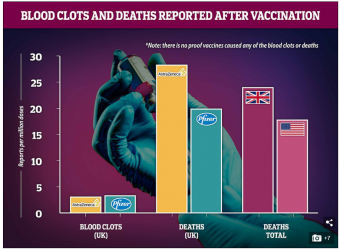@rogerkambah @MEL_Traveller @OATEK and
@jakeseven7 of course it is over simplified (massively over simplified) like others I have been reading the covid threads on this site and in the media for the past 12 months but have stayed away from making comments.
First and foremost I have no formal medical training, I would suggest that there are those who contribute to Aff who are media professionals, medical practitioners that deal with human patients, there are also dentists, vets, others with a PHD and any one else that can use the word DR in their title (think online course), Karen from facebook and then other Affer's all looking for their 5 minutes of fame.
I would like to be able to travel again and this afternoon decided to become a little antagonistic with the math question I was just putting it out there and that got more than one bite. If I now consider the comment
@lovetravellingoz made I am now down to 0.0001% chance of dying from the vaccination side effects this is still far better odds than 2.1% from covid itself.
As I post this I noticed
@serfty has thrown out some new numbers, at an initial glance these seem to be cases per 1M not a % value.
@MEL_Traveller 4.6M doses would be 4.6M x 4 so around 20 people with clots. 4.6M non vaccinated people at a 2.1% death rate is 9660 in simplified terms.
Just my 2 bobs worth and I will now go back to posting details of building our OWR itinerary, issues with J and F class seating, buggering up dates, getting stung with the london tax and all for trips that may or may not occur in early part or late 2022























